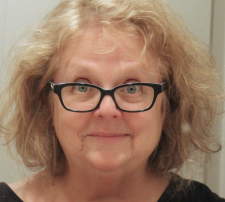by Jamie Chavez
Sometimes you set out to do a thing for one reason only to find it was so much more than you ever imagined. More than you could have actually planned. In this case, I learned just how much value can be wrung out of focusing on the first chapter and how it relates to the rest of the plot.
Months ago I donated a First Pages package to ACFW for their scholarship auction. In a First Pages package I usually ask for a one-page synopsis (500 to 1000 words) and the first chapter, about 3000 to 5000 words. In this case, though, I’d take 8000 words for this special deal. I also placed a slightly higher value on it than I would normally charge to cover anything unusual that might come up. When it was all over, the committee put the winning bidder and me together via email. We communicated about scheduling, and then we got started.
As it turned out, I had quite a bit of email conversation with the author who bought the package. We went round and round for days. Some days I waited impatiently for her next email.
My author’s manuscript was romantic suspense, but the premise threw a third person into the mix, a character who kept trying to run away with the plotline. We tweaked the synopsis and took care of that. As we did so, the author began to realize the third character had been masking the fact that her two main characters weren’t very interesting (her words and assessment), so while we allowed the third character to step backward into the periphery where she belonged, we also added details to the two main characters’ backstories to make them more compelling. We didn’t actually change much about the scene in which readers are introduced to them—a little more dialogue, a few facial expressions—but now the motivation seemed much more clear.
I also was a little unexcited by the first paragraph—that oh-so-important opening paragraph—so I suggested some ways to make it more active, less passive, and to start revealing character earlier. The author grokked my meaning right away and the next time I looked at that opener, wow, it was great! We continued to discuss and tweak the synopsis too.
And then we were finished. The author herself decided she’d gotten what she needed from our interaction, and she cut me loose, although I invited her to keep in touch. She wrote me a lovely thank-you note that made my day.
But here’s what got my attention—this was fun for me. Fun! (I’ve always loved to read and talk about what I’m reading to anyone who would listen, so I guess it was only a matter of time before I managed to stumble into the work I was meant to do, yeah?) I’d say I had four hours of actual time in those nineteen pages, including detailed notes over three passes. It helped that this author “got” what I was saying and was able to run with it. I feel great about the work we did together.
The first pages of your novel set the tone; introduce your characters, milieu, and motivation; set the story in motion; and—we all hope—make the reader want to keep turning the pages. Take special care with those pages. Next!
How much value can be wrung out of focusing on the 1st chapter? Lots! @EditorJamieC #ACFWBlogs #writing #writetip Click To Tweet Jamie Chavez worked for more than ten years in the Christian publishing industry and twenty as a professional copywriter before becoming a freelance editor in 2004, working on New York Times Best Sellers, and other award-winners. Jamie counts national publishing houses as clients, authors as friends, and spends her days making good books better.
Jamie Chavez worked for more than ten years in the Christian publishing industry and twenty as a professional copywriter before becoming a freelance editor in 2004, working on New York Times Best Sellers, and other award-winners. Jamie counts national publishing houses as clients, authors as friends, and spends her days making good books better.

Comments 3
When an artsy book begins
with slowness of a winter’s dawn,
whatever the awards it wins,
I’ll put it down and then move on.
The writer doesn’t have the right
to take the time that I’ve invested
and make his mirrored-flame burn bright
over the norms he thinks he’s bested.
Style is nice, and so is setting,
but the story is the key,
and if the writer is forgetting
his buyer is Cro-Magnon me,
a dude who likes high-voltage starts,
some gunplay, and repairable hearts.
I had the same problem with my first scene. It was slow, boring, and passive. After five rewrites, I added a scene before it, cut half of the original scene, and sent it in for critique. Much better!
Now, if I could just get my synopsis polished as well!
I’ve always loved writing. It was only recently I discovered that I love talking about it and bouncing ideas around with other writers.